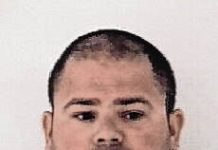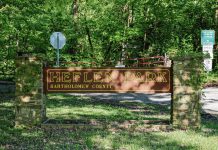The last speech the Rev. Martin Luther King ever gave left his listeners mesmerized.
Among them was Columbus resident Jarvis Cooper, at the time a teenager in his hometown of Memphis, Tennessee, where national civil rights leader King, 39, had traveled to support striking sanitation workers.
One thought ran through the mind of Cooper as he sat in the Mason Temple balcony that evening of April 3, 1968.
“I had never seen a black man have that kind of influence over people as he did that day,” Cooper said.
[sc:text-divider text-divider-title=”Story continues below gallery” ]
It was the night before a sniper’s bullet killed the civil rights leader 50 years ago today.
The biggest influence King has had on Cooper, who like King become a clergyman and polished speaker, “is on learning to love people through adversity,” the local resident said.
“It was like a sacrificial gift of love that he gave,” Cooper said of King.
Cooper is among many who are reminiscing today about the impact that King, a Southern Baptist minister who led the Southern Christian Leadership Conference, had on civil rights in America. King primarily used nonviolent protests starting in the mid-1950s to fight segregation and achieve significant advances for blacks.
“It doesn’t really seem like it has been that long ago,” said Cooper, who also works as a corporate consultant. “It’s almost like drifting out to sea. You don’t really realize how far you’ve drifted until you look back.”
“When he was slapped in the face, when he was stabbed, or when he was jailed, or when his life and his family’s life was threatened — it would have been so, so easy, to find a way to strike back at people and to seek revenge. But he clearly had a sense of purpose and grace that allowed him to stand steadfast.”
— Tony McClendon, Columbus, multicultural coordinator for the Bartholomew Consolidated School Corp., on rev. Martin Luther King Jr.
King’s final speech was “I’ve Been to the Mountaintop,” the oratory that included a foreboding of his death in these lines: “Like anybody, I would like to live a long life; longevity has its place. But I’m not concerned about that now. I just want to do God’s will. And he’s allowed me to go up to the mountain.”
Columbus resident Tony McClendon, multicultural coordinator for the Bartholomew Consolidated School Corp., heard King speak at a service at the heralded Ebeneezer Baptist Church in McClendon’s hometown of Atlanta in the early 1960s. He was about 9 years old at the time.
“At that time, my family knew more about his (pastor) father than we obviously did about the prominence his son eventually would achieve,” said McClendon, whose father, a postal carrier, delivered mail to the Martin Luther King house on his Atlanta route.
McClendon responded immediately when asked about King’s greatest impact.
“It is simply how he lived his life,” McClendon said. “He actually lived what he preached.
“When he was slapped in the face, when he was stabbed, or when he was jailed, or when his life and his family’s life was threatened — it would have been so, so easy, to find a way to strike back at people and to seek revenge. But he clearly had a sense of purpose and grace that allowed him to stand steadfast.”
Columbus resident Brittany King, who helped launch the Black Lives Matter of Columbus chapter in July 2016, mentioned that she never would be among the leaders of such a group without King’s life and influence focusing on justice for blacks.
“His biggest achievement was really sacrificing his life for the betterment of black people — black people’s rights, black equity, and for black liberation as a whole,” Brittany King said. “I’m sure when he began to mobilize the civil rights movement in the 1950s, he didn’t see that he would live such a short life and die at age 39.”
She finds sadness and irony that a man who preached and lived nonviolent protests died by gun violence.
“Martin Luther King’s legacy birthed millions of activists,” Brittany King said. “And we make sure his life will not be in vain. He is our hero.
“And day by day, we reclaim his true identity that America persistently tries to wash away. Martin Luther King was killed because he was a threat. Martin Luther King knew the truth — even when society hated him for it. He knew, we know … the three scariest words for America to hear — still — is Black Lives Matter.”
[sc:pullout-text-end][sc:pullout-title pullout-title=”King event today in Indianapolis” ][sc:pullout-text-begin]
Program: “Still We Reach: Community Reflection & Conversation,” featuring U.S. Rep. John Lewis, also an author and civil rights pioneer, with Kerry Kennedy, president of Robert F. Kennedy Human Rights and daughter of the late U.S. senator from New York.
When: 10:30 a.m. today
Where: Landmark for Peace Memorial, 1702 N. Broadway St., Indianapolis
Details: Event is free and open to the public, but seating is extremely limited. For additional information, visit kennedykingindy.org.
[sc:pullout-text-end]




